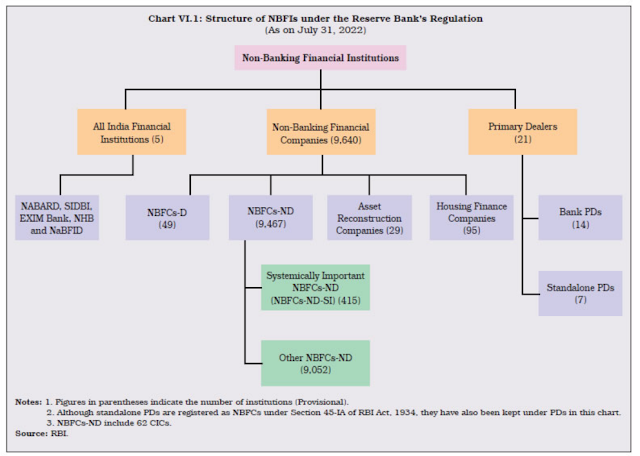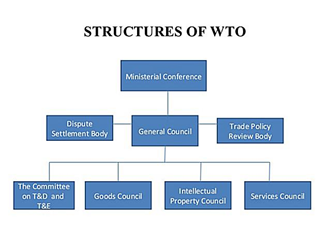Meaning
-
- Those companies which are involved in business of financial products and are not categorised as banks are known as Non-Banking Financial Companies (NBFCs).
- Most of the NBFCs are not allowed to take deposits from the public.
- The various categories of business include Business of loans and advances; insurance; buying/selling of shares, bonds and debentures; chit-fund etc.
- There are range of other activities which are undertaken by NBFCs.
- Regulation by 3 regulators:
- Loan and advances, Government Securities: By RBI
- Insurance: By Insurance Regulation and Development Authority of India (IRDAI)
- Shares, Corporate Bonds: By Securities and Exchange Board of India (SEBI)

Note:
-
- NBFCs – D: may access public funds, either directly or indirectly through public deposits, CPs, debentures, inter-corporate deposits and bank finance.
- NBFCs – ND: They may access public funds through all of the above modes except through public deposits.
- NBFC-ND-SI: Those NBFC-ND whose asset size is of ₹ 500 crores, or more are considered as systemically important NBFCs. The rationale for such classification is that the activities of such NBFCs will have a bearing on the financial stability of the overall economy.
- Primary Dealers (PDs): They deal with the market of Government Securities (G-Secs) of both Central and State Governments.
- AIFIs: All the AIFIs are also classified as NBFCs as per RBI classification.



